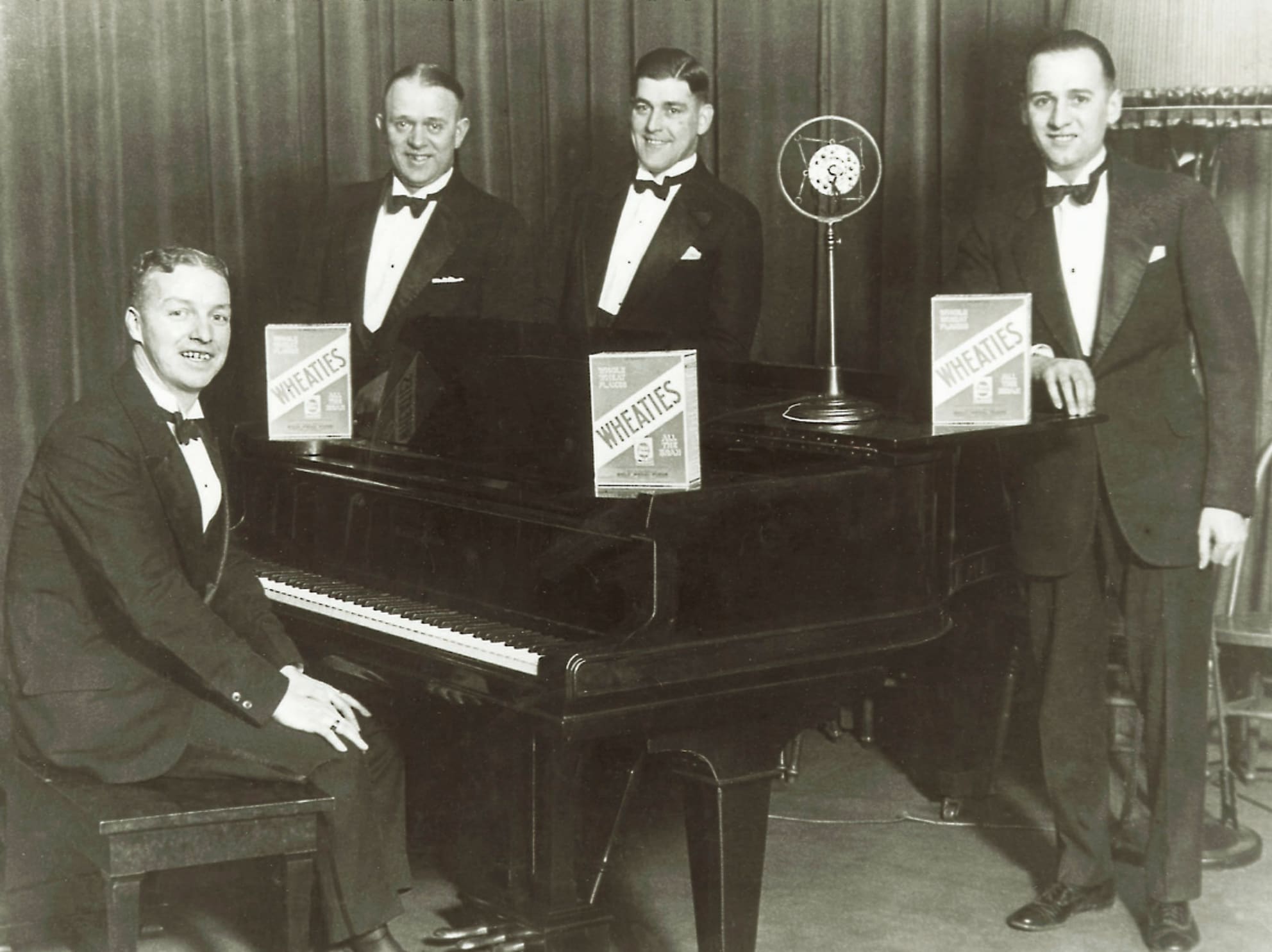
Singing for cereal
If it wasn’t for a barbershop quartet in a radio studio in Minneapolis, Minnesota, on Christmas Eve in 1926, Wheaties cereal would have been long forgotten by now.
They were hired to sing a jingle titled “Have You Tried Wheaties?” It is believed to be radio’s first singing advertisement.
Introduced in 1924, Wheaties was the Washburn-Crosby Company’s first product other than flour. Initially known as “Washburn’s Gold Medal Whole Wheat Flakes,” the name was dropped a year later for Wheaties. (Washburn-Crosby was the predecessor company of General Mills).

But in its first two years, the cereal failed to catch on. Some on the company’s board wanted to scrap the product and stick with processing grain. Others saw a future in diversifying with a product like Wheaties.
That’s when Donald Davis, company vice president, stepped in. He contacted the manager of the WCCO radio station – which at the time was owned by Washburn-Crosby Co. (hence the call letters) – and suggested a special radio campaign for Wheaties.
Davis wanted to prove the effectiveness of WCCO or, in his words, “find out what that radio station of ours is good for.”
He met with Henry A. Bellows, then WCCO manager, and Earl Gammons, the station’s publicity man, who wrote the jingle, which borrowed the chorus melody from the popular 1919 song “Jazz Baby.”
To perform the song, Washburn-Crosby enlisted a vocal quartet.

They were William Elliot, the quartet manager who was an undertaker; William R. Hoppenrath who worked in the printing industry; Ernie Johnson, who was connected with a grain company; and Phil Schmidt, a bailiff in municipal court who could also yodel.
Each week for three years, the quartet sang the Wheaties jingle, getting paid $15 ($200 in today’s dollars). They performed live every time because practical recording equipment had not yet been invented.

The jingle’s words include: “Have you tried Wheaties? They’re whole wheat with all of the bran. Won’t you try Wheaties? For wheat is the best food of man. They’re crispy and crunchy the whole year through. The kiddies never tire of them and neither will you. So just buy Wheaties, the best breakfast food in the land.”
But by 1929, sales were still poor and falling. They had dropped to 53,000 cases that year – about half what they were in 1927.
The General Mills board (we became General Mills in 1928) was set to end the company’s experiment with breakfast cereal.
“Then, with something of a last-minute rescue in the movies, a champion of Wheaties appeared – Samuel Chester Gale of the Advertising Department,” wrote James Gray, in “Business Without Boundary: The Story of General Mills.”
Gale told the board that more than 60% of Wheaties sales were in the Minneapolis-St. Paul area – the only place where the “Have You Tried Wheaties?” jingle was regularly broadcast.
“I believe that if the use of radio were extended to other territories, these figures would be duplicated and that Wheaties need not be dropped,” Gale said.
The board agreed, and Wheaties launched a national campaign. Sales soared.
In 1933, nine years after the cereal was introduced, Gale and legendary ad man Knox Reeves coined what would become one of the most famous advertising slogans in history: “The Breakfast of Champions.”
The Wheaties jingle – and the Breakfast of Champions slogan – were among the first of several General Mills advertising coups to follow.
